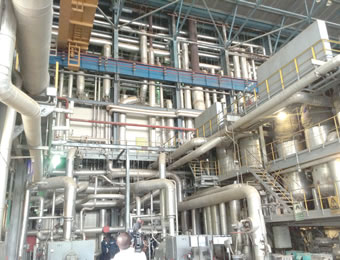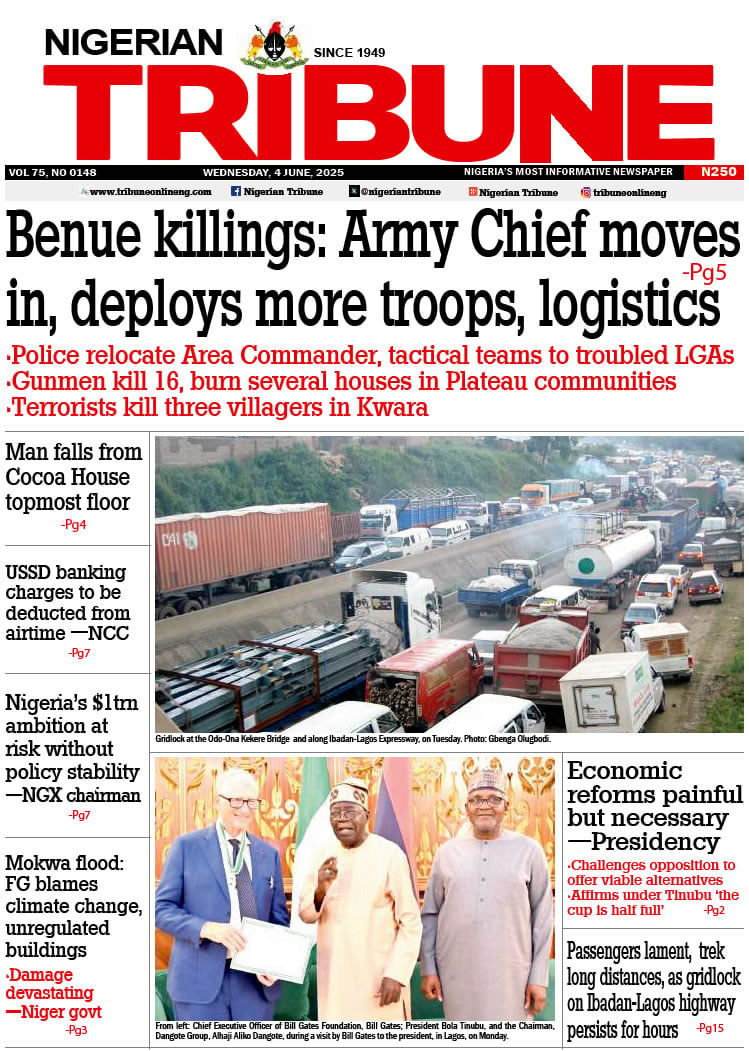While the hope of reduced unemployment and a better economy holds as a result of the reactivation of the Ajaokuta Steel Company, YINKA OLADOYINBO reports why the issue of resettlement of affected host communities members lingers after many years.
The Ajaokuta Steel Company was believed to be capable of catapulting Nigeria into the comity of developed nations of the world as it has been noted that no country can develop without a robust steel industry. The discovery of iron ore in commercial quantity in the early 1970s led to the bold step taken by the country to establish a steel company to tap the resource and convert it steel.
When the idea was conceived and the construction of the company started, Nigerians and the people of the host communities in particular were full of high hopes and enthusiasm that it would place the area on the world map and also bring enormous short and long term benefits to them. After the completion of the first phase of the company, it became operational between 1983 and 1988 and between 2004 and 2008 after which it stopped operations. The development made the public dejected, considering the fact that several billions of dollars have been expended by government on the project.
However, recently the good news came to town that the Federal Government has resolved the legal obstacles that had led to the closure of the company for over eight years and it is expected to be back on stream as soon as possible. The resolution of the crisis means that Ajaokuta Steel Company reverts to the Federal Government, while the sister company, the Nigerian Iron Ore and Mine Industry Company (NIOMCO), Itakpe also in Kogi State was given out under a concession agreement to Global Infrastructure, an Indian company.
The news led to ecstasy and jubilation among people of the state. Investigation reveals that the host communities and the people therein are anxiously looking forward to the implementation of the agreement, following which the company would be fully back in operation and they would be able to reap both direct and indirect benefits of the organisation.
The major issue yet to be resolved when the company is fully operational is that of the commitment of government to the communities displaced by the take over of 24, 000 hectares of land for the purpose of the steel company by the Federal Government. It was gathered that no fewer than 13 villages were displaced by the government to construct the industry. After displacing the people, government was said to have paid compensation for economic trees and other basic things based on the enumeration conducted.
However, a paramount aspect of the deal, which was the relocation of the displaced people was yet to be effected several years after their lands were taken over.
A top management staff of the company, who spoke on condition of anonymity, said the communities were given two options of either government relocating them or they do so themselves, with the people opting for relocation by government. The relocation has, however, been stalled with many reasons ranging from administration and political interference.
The source said, “After the communities chose the option of relocation, the Federal Government identified a location along Okene road. Unfortunately, the rail line to carry iron ore from Itakpe passes through the area and this was the first major challenge faced by the resettlement move. A new site was picked at kilometre 18. Survey done and the funds handed over to the then Kwara state government.
“The Kwara State government awarded the contract for the construction of the houses, then politics crept in with the creation of Kogi State in 1991. The money for the resettlement was in the kitty of Kwara being controlled by the SDP and Kogi State where the project is now located being controlled by the NRC. And without the fund, Kogi State refused to go ahead with the project. What we did was to set up an inter ministerial committee because by then we had high hope that the project will be completed.”
The source, however, stated that the company had always given the people of the community a sense of belonging as some basic amenities were provided for them at no cost. He continued, “the luck we have is that the people are very peaceful and cooperative. Despite the challenges, they are people that believe the project will enhance their lives and improve their condition.
“What we have done on our part is to connect them to our power system, hitherto they were in darkness. So the same electricity we consume is what they also use with the company bearing the cost. Some of them that are fishermen used to come and spread their fish in our yards when they have large catch, but now that they have electricity, they now have fridges and freezers that they use to ice the fishes. We have over 500 transformers, part of which serve the communities; we only installed a bulk meter in the community to ascertain the quantity of electricity being used by the people.”
However, as these palliative measures are ongoing, the people are filled with anxiety over the completion of the project. They maintained that they were ready to give enough support to ensure that the company fulfil the motives for which it was established.
The administrator of Ajaokuta Local Government Area, Aliu Akaaba, said the people were ready for the company to come on stream. According to him, the benefits of the organisation working would be enormous to his people as it was capable of bringing them out of the shackles of poverty.
He said, “To the glory of God we received the news of the coming on board of Ajaokuta Steel with joy because no nation can develop without a steel industry. Once we develop Ajaokuta Steel, Nigeria will no longer have to import anything that has to do with steel. And by the time it comes on stream, people that we import steel from will not be happy. So we are appealing to government to make haste and complete the project. They should not give it to any company to run.
“Ajaokuta is the only hope for Nigeria, not because it is in my territory, it is the sleeping giant of Africa. We don’t only have Ajaokuta, we have the raw materials, particularly in Ebiya; the steel components discovered in the place can be mined for 155 years non stop.
“Our people are more than ready. We are the most receptive people on earth. Ajaokuta is exclusively an Ebira land, look at the vast land given to the steel company. The youths are ready and willing to assist because we know we stand to benefit immensely if the factory is working, our people will be employed, commercial activities will pick up, social life will improve and more money will come to the people and government”.
Also speaking, a leader of the artisans in the town, Ibrahim Adoza, expressed joy that government had finally shown commitment towards the project. He said the operations of the company would go a long way at improving the standard of living of the people as the area would eventually turn into commercial hub and full of activities.
He said, “Everybody in the area will feel the impact. It happened before during the little period that the company operated; our people knew that one big company was in the area. A lot of boys that would have been employed as technicians, labourers and so on are roaming the street with many of them becoming Okada riders and constituting security threat to the society.
“But with the latest effort, there will be more jobs; the traders on the street will feel the impact; more social amenities will be provided and the area will be more developed because of the calibre of people that will be working and be coming to do business in the steel company.”
Investigation has further shown that the Ajaokuta steel company is indeed the bedrock of the country to industrialisation and development. Presently, the company is said to have about 3,000-man work force despite its predicament. The source in the company stated that with the Detailed Project Report (DPR) done on the company, the first stage operation would employed no fewer than 500, 000 people directly and indirectly.
Giving a breakdown of the projection, he said, “There will be a rail link between Ajaokuta-Itakpe-Warri, anybody working, particularly in the maintenance of the rail is an employee. We have four rolling mills, the medium section and structural mill, the light section mill, the wire rod mill and the billet mill, every 10 direct employees of the company will generate 50 indirect employments.”
Now that Nigeria seems to be putting behind it the alleged international conspiracy that had constituted itself as the cog in the wheel of its efforts at developing its steel sector, the local communities can no longer wait to reap from the God given natural resources underneath their territories.






